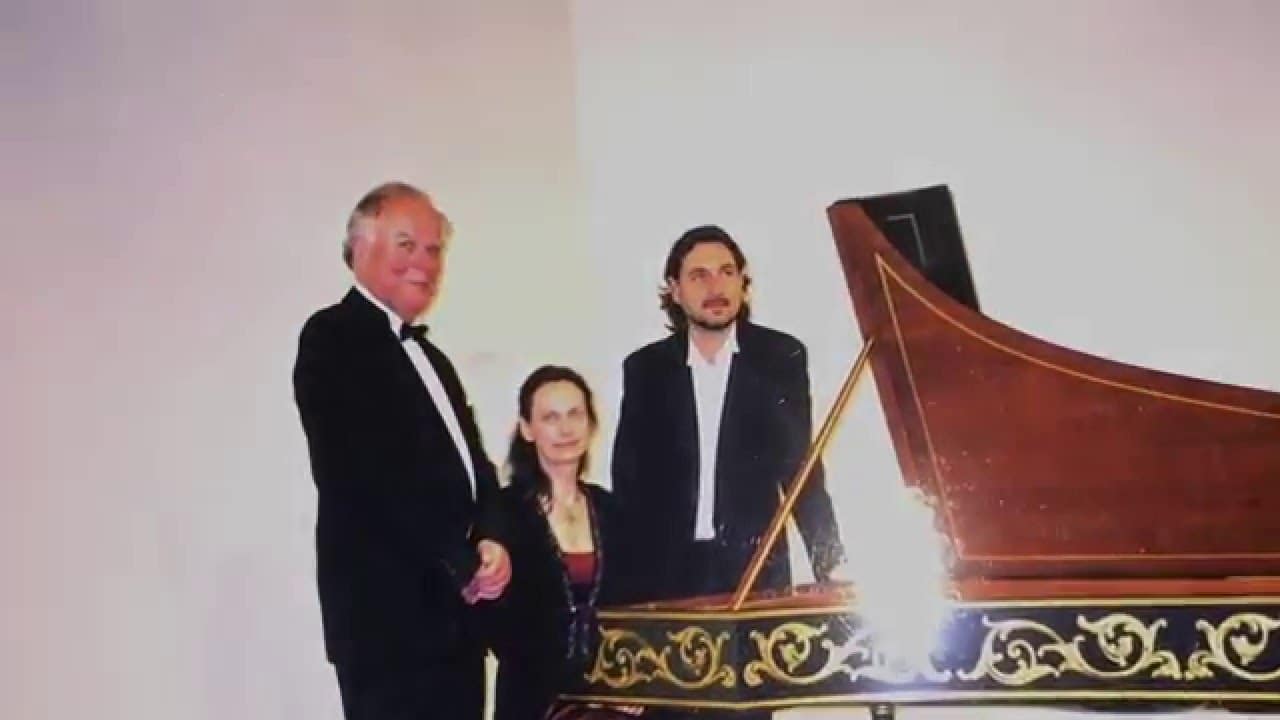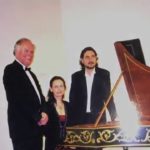A pioneering English tenor has died, aged 86
RIPThe death is reported of the Baroque tenor Nigel Rogers, a trailblazing singer of John Dowland’s melancholies and much else. His passing was announced on BBC Radio3 and on French media.
A choral scholar in 1950s Cambridge, Rogers founded a medieval ensemble in Munich, the Studio der frühen Musik, to make his first recordings. He starred elsewhere in Monteverdi’s Orfeo, settled in Kent and took a professorship in London at the Royal College of Music. In later years, he published scholarly articles on early music.







Very sad news. Nigel Rogers made a superb recording of Orfeo in the 70’s or 80’s with London Baroque. Emma Kirkby sings the prologue. It’s still an outstanding recording and well worth revisiting.
Nigel Rogers was also gratefully heard as “Captain Macheath” in THE BEGGAR’S OPERA set from the Accademia Monteverdiana, directed by Denis Stevens back in vinyl days. Although the dialogue was omitted, the character of the smug, lascivious highwayman was conveyed through Rogers’ singing.
Golly, Joel, that would be a (literally) rare treat. Anyone out there who could post it on YouTube?
He had a hand in so many excellent recordings. His attention to words and his superb technical skills made him always worth paying attention to. I will seek out in my collection his Orfeo (still one of the best), some Monteverdi madrigals, Schuetz Musikalische Exequien, the Dowland illustrated above, and French airs de couer. There was no better singer for so much seventeenth century repertoire.
So. Farewell then Nigel Rogers.
Though you broke
Unexplored paths and were
Nonpareil in your chosen field,
You always found it hard
To take a compliment.
When in 1986 the Independent wrote,
“With his grainy tenor,
He may sometimes sing like a drain,
But the listener is in no doubt
That the plumbing is
Authentic Italian Baroque”,
You unaccountably
Threatened to kill its reviewer.
If Anthony Rooley is the
Harold Wilson of early music,
Then truly you were its Steven Berkoff.
A. C. B. Thribb (age 415½)
Imagine the Independent covering a release of seventeenth century baroque music now!
I remember reading years ago on some liner notes of a record borrowed from the library that Nigel Rogers had made a close study of middle eastern singing techniques. He certainly had an instantly recognisable and powerful voice combined with a formidable musical intelligence.
Imagine indeed, Tribonian! And further imagine a national newspaper having a classical-music editor: she the happy recipient of Rogers’s postcard with its dire threats.
And yes: it was those studies that enabled Rogers to become the first singer in modern times to realise convincingly the trilli/gorghe so vital to much of Monteverdi’s music. Who could not have been knocked sideways the first time they heard him sing “Possente spirto” in Jürgen Jürgens’s 1974 recording of Orfeo?
“Rogers [became] the first singer in modern times to realise convincingly the trilli/gorghe so vital to much of Monteverdi’s music”
Yes! This exactly.
Sad news. While an early participant with Studio der fruhen musik, Mr. Rogers was neither a founder of the group, nor was it done in order to record him. It was founded by Thomas Binkley with Sterling Jones and Andrea von Ramm.
Very sad news. But it brings back a good memory from a concert he gave in Manchester in about 1980. I met him afterwards and we talked for a while about singing, including which languages/cultures lend themselves more easily to singing. He was very engaging and generous to a teenager with a thirst for knowledge about singing. You remember these things. Thank you. RIP.
I was a boy chorister in the choir of Kings College Chapel Cambridge from January 1954, when Nigel Rogers sang on the Decani side opposite me on Cantoris and I clearly remember his bright ringing voice that Boris Ord liked so much. A great contributor to the art of singing for decades.
That’s an excellent recollection, Tony: thank you!
Nigel can be seen (but not heard) in the Invitatory of the 1954 BBC televised Lessons & Carols with congregation here:
https://youtu.be/ofGxXwA8i7c (go in at 7:50; he’s left of the tenor singing the solo)
and heard (but not seen) in the same solo on the Argo LP (RG 39) that was made during “special sessions” ahead of (and in content rather different from) the BBC recording:
https://youtu.be/mqc3ldQk0Q0
In the 1970s his command of the baroque coloratura was unique and absolutely stunning. Everyone can do it now, but in those days the audiences were literally on the edge of their seats in amazement. It’s still thrilling to hear and, mercifully, well preserved on record.
He was particularly inspired by the technique of the Indian singer Bhimsen Joshi, though he once told me he had never actually met him, contradicting the well-known story that they had met and Nigel went up to him and asked ‘Tell me how you do that’! He was a superb linguist which made his performances in German, Italian and French (as well as English) so convincing.
Two bits of trivia: he sings the role of Maintop in Britten’s ‘Billy Budd’, rather hauntingly, in the recording (and BBC Television relay, now on YouTube) with Pears, Shirley-Quirk, Peter Glossop, etc.; and is also in the choir as a choral scholar in the first television relay of the Service of Nine Lessons and carols from King’s College, Cambridge, in 1954 – also on YouTube. I was privileged to have some lessons with him in the 1970s, but never even remotely succeeded in approaching his vocal skills in the baroque repertoire. I know it’s a tired old cliche, but he really was unique!
What a loss to the musical world. Knew him years ago and studied a bit with him. Have many of his incredible recordings.